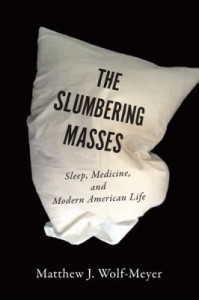Scientific Studies
Farts prevent cancer? Trusting science; taking science reporting with a grain of salt:
Exercise and Mood
You already know this: Exercise Can Aid in Emotional Regulation (PsychCentral). The way it was measured here may improve your mood (with or without exercise):
The study was conducted on 80 participants (40 men and 40 women) and each was assigned to either an aerobic exercise or no exercise (stretching).
They were asked to complete an online survey to establish their emotional mood and then immediately instructed to either jog for 30 minutes, or stretch for 30 minutes.
They were subsequently asked to watch a sad scene from the film “The Champ.” The participants then completed a range of questionnaires and measures to determine their emotion regulation.
Finally, all participants were instructed to watch a brief, amusing clip from “When Harry Met Sally.”
[P]articipants who had completed 30 minutes of moderate aerobic exercise reported feeling less sadness by the end of the study, in comparison to individuals who had not exercised.
Overconnecting
“Stop Googling. Let’s Talk” (NYT again) surveys the trouble-with-cell-phones research (distraction up, empathy down). This jumped out:
Studies of conversation both in the laboratory and in natural settings show that when two people are talking, the mere presence of a phone on a table between them or in the periphery of their vision changes both what they talk about and the degree of connection they feel. People keep the conversation on topics where they won’t mind being interrupted. They don’t feel as invested in each other. Even a silent phone disconnects us.
If you make it through the article wanting more, there’s a whole book of this stuff (to read on your phone, of course).
Figuring Out Therapy
In case you missed in, here’s Daphne Merkin on the pitfalls of entertaining in therapy–Making My Therapist Laugh (NYT):
One of the odder things about therapy, I’ve discovered, is that it comes with little in the way of a code of conduct as opposed to other situations you find yourself in…There is no one, in short, to tell you how to behave. Indeed, the assumptions you make about how you should behave can reveal as much about you as what you actually say or do in therapy itself…[F]or the longest time I thought my role as a good patient was to entertain, to tap-dance around my troubles, like a Ms. Bojangles, aiming for a heartwarming response from the gallery. Indeed, I became so skilled at casting my issues in an amusing light that one of my therapists asked me if I had ever considered becoming a stand-up comedian…
Grow Your Brain
 New studies continue to show that exercise is good for your brain. From the NYT:
New studies continue to show that exercise is good for your brain. From the NYT:
Until about 20 years ago, most scientists believed that the brain’s structure was fixed by adulthood, that you couldn’t create new brain cells, alter the shape of those that existed or in any other way change your mind physically after adolescence.
But in the years since, neurological studies have established that the brain retains plasticity, or the capacity to be reshaped, throughout our lifetimes. Exercise appears to be particularly adept at remodeling the brain, studies showed.
Looking for a quick way to exercise? Another study likes this seven minute workout. All you need is a floor, a wall, a chair, and some gravity.
Reading and Empathy
 Cheering news for lit snobs via the NYT. Empathy, social perception and emotional intelligence get a boost from reading–certain reading:
Cheering news for lit snobs via the NYT. Empathy, social perception and emotional intelligence get a boost from reading–certain reading:
[A] series of five experiments conducted by social psychologists at The New School for Social Research in New York City, people who read excerpts from literary fiction (Don DeLillo, Alice Munro, Wendell Berry) scored better than people who read popular fiction (Gillian Flynn, Rosamunde Pilcher, Mary Roberts Rinehart) on tests asking them to infer what people were thinking or feeling–a field that scientists call “Theory of Mind.”
Opting Out
Interesting study, by Dr. Carl Hart, written up in the New York Times:
At the start of each day, as researchers watched behind a one-way mirror, a nurse would place a certain amount of crack in a pipe — the dose varied daily — and light it. While smoking, the participant was blindfolded so he couldn’t see the size of that day’s dose.
Then, after that sample of crack to start the day, each participant would be offered more opportunities during the day to smoke the same dose of crack. But each time the offer was made, the participants could also opt for a different reward that they could collect when they eventually left the hospital. Sometimes the reward was $5 in cash, and sometimes it was a $5 voucher for merchandise at a store.
When the dose of crack was fairly high, the subject would typically choose to keep smoking crack during the day. But when the dose was smaller, he was more likely to pass it up for the $5 in cash or voucher.
“They didn’t fit the caricature of the drug addict who can’t stop once he gets a taste,” Dr. Hart said. “When they were given an alternative to crack, they made rational economic decisions.”
Nostalgia v. Angst
 Research says nostalgia is good for you (NYT). One study:
Research says nostalgia is good for you (NYT). One study:
First, the experimenters induced nostalgia by playing hit songs from the past for some people and letting them read lyrics to their favorite songs. Afterward, these people were more likely than a control group to say that they felt “loved” and that “life is worth living.”
Then the researchers tested the effect in the other direction by trying to induce existential angst. They subjected some people to an essay by a supposed Oxford philosopher who wrote that life is meaningless because any single person’s contribution to the world is “paltry, pathetic and pointless.” Readers of the essay became more likely to nostalgize, presumably to ward off Sartrean despair.
Moreover, when some people were induced to nostalgia before reading the bleak essay, they were less likely to be convinced by it.
The Science of Sleeplessness
A survey of the latest in sleep science (and sleep science books) by Elizabeth Kolbert in the New Yorker. This is from The Slumbering Masses, by Matthew J. Wolf-Meyer:
“Americans, like other people around the world, used to sleep in an unconsolidated fashion, that is, in two or more periods throughout the day.” They went to bed not long after the sun went down. Four or five hours later, they woke from their “first sleep” and rattled around—praying, chatting, smoking, or making love. (Benjamin Franklin reportedly liked to spend this time reading naked in a chair.) Eventually, they went back to bed for their “second sleep.”
Mind Over Mind
 How expectations shape experience explored at book length in Mind Over Mind–and at interview length here (Scientific American):
How expectations shape experience explored at book length in Mind Over Mind–and at interview length here (Scientific American):
[P]lacebo effects in medicine are just one example of how our expectations can bend reality. For instance, brain scans reveal that expectations about a wine’s quality (based on price or a critic’s review) actually change the level of activity in the brain’s reward centers when a person takes a sip. Highly-trained weight lifters can out-do their personal bests when they believe they’ve taken a performance booster. People who wear taller, better looking avatars in virtual reality behave in ways that taller and better looking people tend to act. For example, they approach better-looking potential dates and they are more aggressive in negotiations, both in the virtual world and after the headgear is removed. In lab and field experiments, people who stand in powerful poses (think Superman) for a minute or two, have similar hormonal changes to people who are given actual power and authority over another person, and they exhibit the same sorts of behavioral changes.
[via sullivan]
